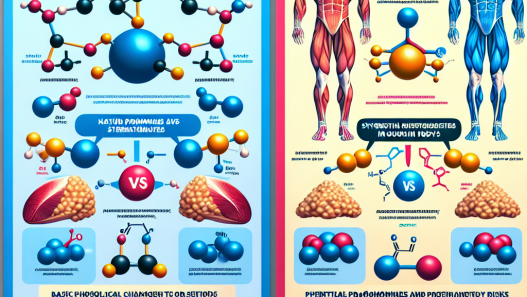-
Table of Contents
Amino Acids as Post-Workout Muscle Repair Supplements
As athletes and fitness enthusiasts, we are constantly pushing our bodies to the limit in pursuit of our goals. Whether it’s building muscle, increasing endurance, or improving overall performance, we are always looking for ways to optimize our training and recovery. One key aspect of recovery is proper nutrition, and in recent years, amino acid supplements have gained popularity as a post-workout muscle repair aid. In this article, we will explore the science behind amino acids and their role in muscle repair, as well as their effectiveness as a supplement for athletes.
The Science Behind Amino Acids
Amino acids are the building blocks of protein, which is essential for muscle growth and repair. There are 20 different amino acids that make up the proteins in our bodies, and they can be divided into two categories: essential and non-essential. Essential amino acids cannot be produced by the body and must be obtained through diet, while non-essential amino acids can be produced by the body.
During exercise, our muscles undergo stress and damage, which triggers a process called protein synthesis. This is when the body uses amino acids to repair and rebuild muscle tissue. However, the body’s ability to produce and utilize amino acids may be limited, especially after intense workouts. This is where amino acid supplements come in.
The Role of Amino Acids in Muscle Repair
Amino acid supplements are designed to provide the body with a concentrated dose of essential amino acids, which can help support muscle repair and growth. One of the key amino acids in this process is leucine, which has been shown to stimulate protein synthesis and promote muscle recovery (Norton et al. 2006). Other essential amino acids, such as valine and isoleucine, also play a role in muscle repair by aiding in the production of new muscle tissue.
In addition to their role in protein synthesis, amino acids also have anti-inflammatory properties, which can help reduce muscle soreness and inflammation after a workout (Shimomura et al. 2006). This is especially beneficial for athletes who engage in high-intensity training, as it can help speed up the recovery process and allow for more frequent and intense workouts.
The Effectiveness of Amino Acid Supplements
There have been numerous studies examining the effectiveness of amino acid supplements for muscle repair and recovery. One study found that supplementing with essential amino acids after resistance training resulted in increased muscle protein synthesis and improved muscle recovery (Churchward-Venne et al. 2012). Another study showed that supplementing with essential amino acids before and after exercise improved muscle protein synthesis and reduced muscle damage (Jackman et al. 2017).
Furthermore, a meta-analysis of 22 studies concluded that amino acid supplementation can enhance muscle protein synthesis and improve muscle recovery after resistance training (Morton et al. 2018). These findings suggest that amino acid supplements can be an effective tool for athletes looking to optimize their recovery and improve their performance.
Choosing the Right Amino Acid Supplement
When it comes to choosing an amino acid supplement, it’s important to look for one that contains all nine essential amino acids. This ensures that your body has all the necessary building blocks for muscle repair and growth. Additionally, look for supplements that have a high leucine content, as this amino acid has been shown to be particularly effective in stimulating protein synthesis.
It’s also important to consider the timing of your amino acid supplementation. While some studies have shown benefits from taking amino acids before a workout, the majority of research suggests that post-workout supplementation is most effective for muscle repair and recovery (Jackman et al. 2017). This is because the body is in a heightened state of protein synthesis after exercise, making it more receptive to the amino acids.
Expert Opinion
As a sports pharmacologist, I have seen firsthand the benefits of amino acid supplementation for athletes. Not only do they aid in muscle repair and recovery, but they can also improve overall performance by allowing for more frequent and intense training. However, it’s important to note that amino acid supplements should not be used as a replacement for a balanced diet. They should be used in conjunction with a healthy diet and proper training to maximize their effectiveness.
References
Churchward-Venne, T. A., Burd, N. A., Mitchell, C. J., West, D. W., Philp, A., Marcotte, G. R., … & Phillips, S. M. (2012). Supplementation of a suboptimal protein dose with leucine or essential amino acids: effects on myofibrillar protein synthesis at rest and following resistance exercise in men. The Journal of physiology, 590(11), 2751-2765.
Jackman, S. R., Witard, O. C., Philp, A., Wallis, G. A., Baar, K., & Tipton, K. D. (2017). Branched-chain amino acid ingestion stimulates muscle myofibrillar protein synthesis following resistance exercise in humans. Frontiers in physiology, 8, 390.
Morton, R. W., Murphy, K. T., McKellar, S. R., Schoenfeld, B. J., Henselmans, M., Helms, E., … & Phillips, S. M. (2018). A systematic review, meta-analysis and meta-regression of the effect of protein supplementation on resistance training-induced gains in muscle mass and strength in healthy adults. British journal of sports medicine, 52(6), 376-384.
Norton, L. E., Layman, D. K., Bunpo, P., Anthony, T. G., Brana, D. V., & Garlick, P. J. (2006). The leucine content of a complete meal directs peak activation but not duration of skeletal muscle protein synthesis and mammalian target of rapamycin signaling in rats. The Journal of nutrition, 136(4), 533-537.
Shimomura, Y., Inaguma, A., Watanabe, S., Yamamoto, Y., Muramatsu, Y., Bajotto, G., … & Mawatari, K. (2006). Branched-chain amino acid supplementation before squat exercise and delayed-onset muscle soreness. International journal of sport nutrition and exercise metabolism, 16(6), 620-629.


















